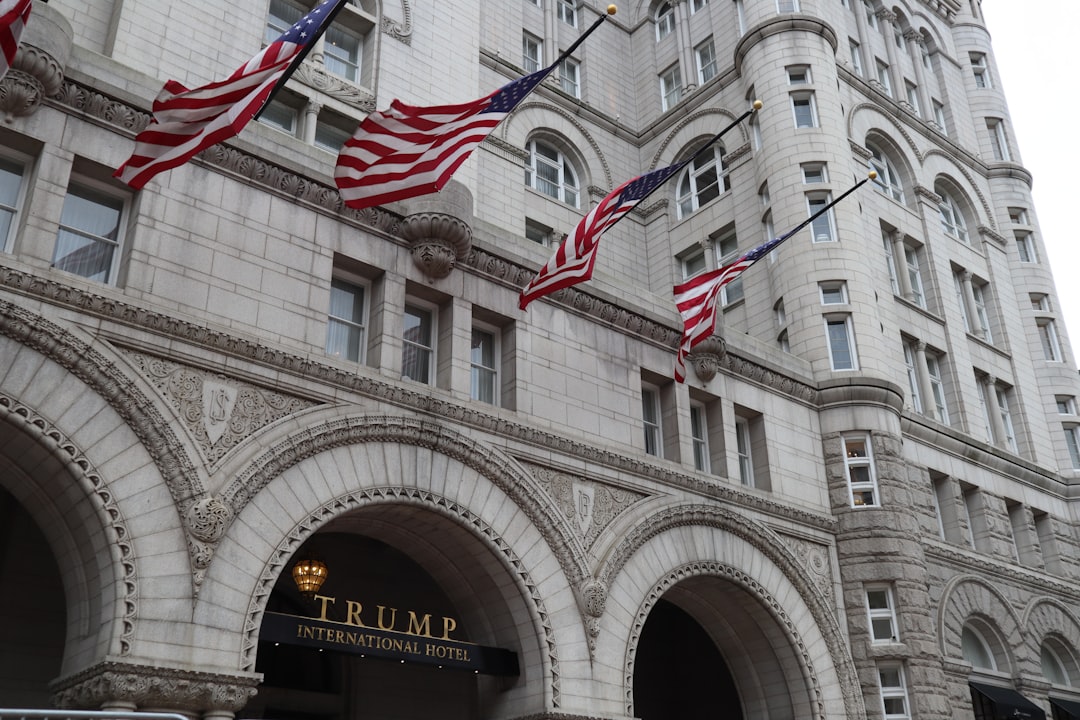Administration Signals End To Guaranteed — here’s what’s new, why it matters, and what to watch next.
Trump Administration Signals End to Guaranteed Back Pay for Federal Employees During Shutdown
In a recent development that has sent shockwaves through the federal workforce, the Trump administration has signaled that it may not guarantee back pay for federal employees during a government shutdown. This announcement represents a significant departure from longstanding policy, which traditionally allowed for back pay for furloughed employees after a shutdown ends. As the potential implications unfold, employees, lawmakers, and the public are grappling with what this means for federal workers who may soon face uncertainty.
At a Glance
- What Happened: The Trump administration is considering a policy change that would eliminate guaranteed back pay for federal workers during a shutdown.
- Impact: Approximately 750,000 furloughed employees could be affected by this policy shift.
- Presidential Remarks: President Trump stated that some federal workers “don’t deserve” back pay, sparking controversy and concern.
- Historical Context: Previous administrations have provided back pay for furloughed employees as a matter of course following government shutdowns.
- Congressional Negotiations: Observers should keep an eye on ongoing budget negotiations in Congress, as these discussions will ultimately determine whether a shutdown occurs and the fate of federal employee compensation.
- Public Response: Public sentiment regarding federal workers and the administration’s policies will likely evolve over time, especially as more citizens become aware of the implications of the proposed changes.
- Legal Actions: If a shutdown occurs without back pay guarantees, there may be legal challenges brought forth by federal employee unions or advocacy groups seeking to protect the rights of workers.
Background & Timeline
The issue of government shutdowns is not new in the United States. Over the years, there have been several instances where federal operations have come to a halt due to budgetary disagreements. Historically, when such shutdowns occur, federal employees are often furloughed, meaning they are temporarily laid off but expected to return to work once the government resumes operations.
In past shutdowns, back pay for furloughed employees has been a standard practice. For example, during the 2018-2019 government shutdown, which lasted 35 days, federal employees received back pay once the government reopened. This precedent has created an expectation among workers that they will be compensated for their time away from work.
However, the Trump administration’s current position raises questions about the future of this practice. In a statement that has drawn significant media attention, President Trump remarked that some federal workers “don’t deserve” to receive back pay, suggesting a shift in the administration’s approach to handling shutdowns and furloughs.
What’s New
The administration’s announcement regarding back pay comes amidst escalating tensions in Congress, where discussions surrounding budget allocations and government funding have reached an impasse. As negotiations stall, the specter of a government shutdown looms larger.
Reports indicate that the White House is reevaluating its stance on compensating furloughed employees, with some officials advocating for a stricter approach that would deny back pay altogether. This policy shift poses a direct threat to the livelihoods of many federal workers, who rely on their salaries to support their families and meet financial obligations.
Why It Matters
The potential elimination of guaranteed back pay during a government shutdown carries significant implications for the federal workforce and the broader economy.
1. Financial Security: For many federal employees, their salaries are crucial for maintaining financial stability. The uncertainty surrounding back pay can create stress and anxiety, particularly for those living paycheck to paycheck.
2. Employee Morale: The administration’s stance may also impact employee morale within federal agencies. Workers may feel undervalued and unappreciated, leading to decreased productivity and job satisfaction.
3. Political Ramifications: The Trump administration’s approach could fuel further political divisions. Opponents of the president may argue that withholding back pay is an unfair punishment for workers who are not directly involved in budget negotiations.
4. Public Perception: The public’s perception of federal workers and their contributions to society may also be affected. Comments from the president suggesting that some workers “don’t deserve” back pay could further entrench negative stereotypes regarding government employees.
What to Watch Next
As discussions continue in Washington, several key developments should be monitored:
FAQ
Q1: Why would the Trump administration consider ending guaranteed back pay for federal workers?
A: The administration’s approach appears to be a response to ongoing budgetary disputes, and comments from President Trump suggest a belief that some federal workers may not merit back pay during a shutdown.
Q2: How many federal workers could be affected by this policy change?
A: Approximately 750,000 federal employees could be at risk of losing guaranteed back pay if the administration follows through with this policy shift.
Q3: What are the historical precedents for back pay during government shutdowns?
A: Historically, federal workers have received back pay following government shutdowns. Notably, during the 2018-2019 shutdown, employees were compensated for their furloughed time once the government reopened.
Q4: What are the potential consequences of not providing back pay?
A: Not providing back pay could lead to financial instability for federal workers, decreased morale within federal agencies, and increased political tensions in Congress.
Q5: How might the public react to the administration’s stance?
A: Public perception may shift as individuals become more aware of the implications of withholding back pay, potentially leading to increased support for federal workers and criticism of the administration’s policies.
Takeaways
The Trump administration’s warning against guaranteeing back pay for federal workers during a potential government shutdown marks a significant shift in policy that could have far-reaching implications for hundreds of thousands of employees. As negotiations in Congress continue, the fate of these workers remains uncertain, highlighting the ongoing challenges faced by the federal workforce in the realm of budgetary politics.
As the situation develops, the potential for a government shutdown looms large, and its implications will be felt not only by federal employees but also by the broader American public.
Sources & Credits: Reporting synthesized from multiple reputable outlets and official releases.
Read our related coverage for more on Administration Signals End To Guaranteed.
For context and confirmations, see reputable wires like Reuters or AP News.
Source: Original Source. Reporting synthesized from multiple reputable outlets and official releases.
For deeper analysis on Administration Signals End To Guaranteed, explore more reports and explainers on Insurance Rate Expert.













